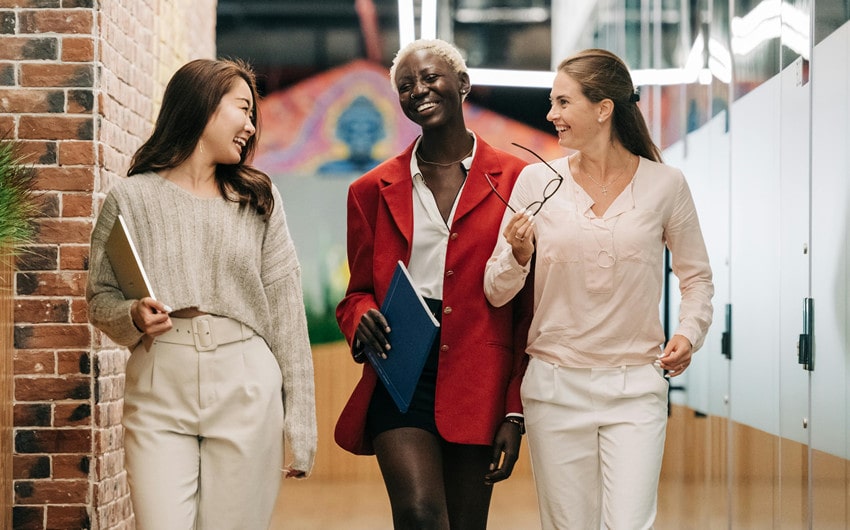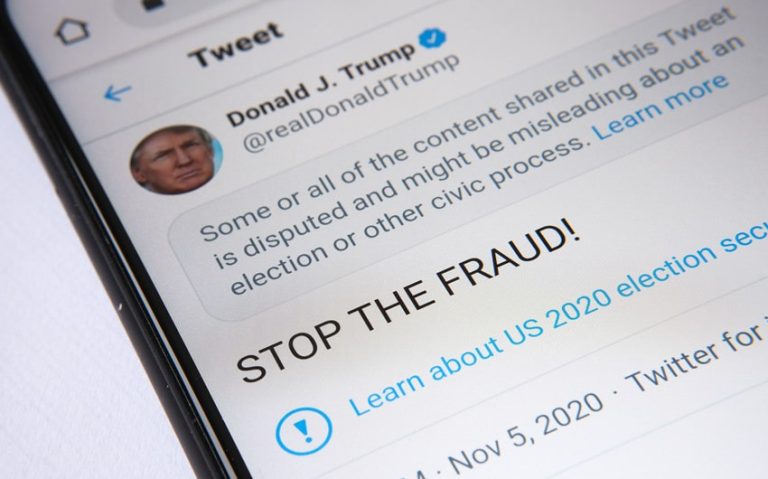Good Luck with Your Future Endeavors: When and How to Use It
When someone is moving on to a new chapter in their life, whether it’s a new job, graduation, or another big change, finding the right words to wish them well can be tricky. The phrase “good luck with your future endeavors” is a simple yet thoughtful way to send your best wishes.
It’s a message that’s both encouraging and respectful, making it perfect for a variety of situations. In this article, we’ll explore the best ways to use this phrase, when it’s most appropriate, and how to make your good luck message truly meaningful.
Is It Correct to Say “Good Luck with Your Future Endeavors”?
The phrase “Good luck with your future endeavors” is widely used and considered grammatically correct in both formal and informal settings. It’s a polite and respectful way to wish someone success as they move forward in life, whether they are starting a new job, graduating, or making any significant life change. Let’s break down why this phrase is appropriate and some common misconceptions surrounding its use.
Grammar and Usage
Grammatically, the phrase is straightforward and well-structured. “Good luck” serves as a common expression of positive wishes, while “with your future endeavors” specifies what the speaker is wishing good luck for. The word “endeavors” refers to efforts or undertakings, making it a versatile choice that can apply to various situations, from career changes to personal projects.
Additionally, the phrase “Good luck with your future endeavors” is a minor sentence, which means it is grammatically complete even though it doesn’t follow the full structure of a traditional sentence (subject-verb-object). This minor sentence structure is common in greetings and well-wishes, making it perfectly acceptable in both casual and formal communication.
Common Misconceptions
One misconception about the phrase is that it might sound too formal or impersonal, especially when used in a casual setting. However, the phrase can be personalized depending on how it’s delivered. For instance, when accompanied by a personal note or spoken with genuine warmth, it can feel sincere and heartfelt.
Another misconception is that the phrase is a cliché. While it’s true that the phrase is commonly used, it’s the thought behind the message that counts. When genuinely expressed, even a familiar phrase can carry deep meaning.
Appropriate Contexts
“Good luck with your future endeavors” is particularly suitable in situations where you want to maintain a sense of professionalism while also conveying your best wishes. It’s commonly used in workplace settings when someone is leaving a job, retiring, or transitioning to a new role.
The phrase is also appropriate for graduations, where you wish a student success in their next steps, whether they’re starting a career or continuing their education. Additionally, it’s a fitting choice when someone is embarking on a personal journey, such as moving to a new city or starting a new project.
When to Say “Good Luck with Your Future Endeavors”

The phrase “Good luck with your future endeavors” is a versatile expression that fits a variety of situations where someone is moving on to a new phase in their life. Below, we explore some of the most common scenarios where this phrase is appropriately used.
Farewell to a Colleague
One of the most common times to say “Good luck with your future endeavors” is when a colleague is leaving the workplace. Whether they’re retiring, resigning to take up a new job, or transitioning to a different role within the same company, this phrase conveys respect and best wishes for their continued success.
It’s particularly effective in professional settings where maintaining a courteous tone is important. For example, in an email or farewell speech, saying “Good luck with your future endeavors” can help to express appreciation for the person’s contributions while also acknowledging their upcoming journey.
Graduation or Completing a Milestone
Another appropriate occasion to use this phrase is during graduations or the completion of significant milestones, such as earning a degree, certification, or finishing a major project. In these situations, “Good luck with your future endeavors” acknowledges the hard work that has led to this point and expresses optimism for what lies ahead.
Whether you’re a teacher, mentor, or peer, this phrase serves as a gentle encouragement for the graduate or achiever to continue pursuing their goals with confidence.
Moving to a New Location
When someone is relocating, whether for a new job, personal reasons, or simply seeking a change, it’s customary to wish them well as they embark on this new chapter. “Good luck with your future endeavors” is a fitting way to send them off, especially if the move involves significant life changes.
This phrase not only acknowledges the challenges that come with moving but also conveys hope that the transition will lead to positive outcomes. It’s a supportive way to show that you care about their future success, even as they move away from the familiar.
Personal Life Changes
“Good luck with your future endeavors” is also suitable when someone is experiencing major personal life changes, such as getting married, starting a family, or embarking on a personal project or passion. These moments often mark the beginning of a new chapter, filled with both excitement and uncertainty.
By using this phrase, you’re offering your support and encouragement as they step into this new phase of their life. It’s a way to acknowledge their courage and determination while expressing your belief in their ability to thrive in whatever they pursue next.
End of a Partnership or Collaboration
In both professional and creative contexts, partnerships and collaborations often come to an end as projects conclude or teams disband. “Good luck with your future endeavors” is a respectful way to close out these relationships, particularly when both parties are moving on to new opportunities.
It helps maintain a positive tone and leaves the door open for future collaborations. Whether you’ve worked together on a business deal, a creative project, or a volunteer initiative, this phrase can help ensure that the parting is amicable and that the relationship remains positive.
Retirement
Retirement is a significant life event that marks the end of a long career and the beginning of a new chapter of relaxation, exploration, or pursuing personal interests.
Saying “Good luck with your future endeavors” to someone retiring is a thoughtful way to acknowledge their accomplishments and wish them happiness and fulfillment in whatever they choose to do next. It shows respect for their career and excitement for the possibilities that lie ahead in their retirement years.
Examples of “Good Luck with Your Future Endeavors” Messages
Crafting a thoughtful “Good luck with your future endeavors” message can make a lasting impression, whether you’re saying goodbye to a colleague, congratulating a friend, or wishing someone well in a more formal setting. Here are some examples tailored to different scenarios, each designed to reflect the unique relationship you have with the recipient.
Professional Farewell Messages
When a colleague or employee is leaving, a professional farewell message that includes “Good luck with your future endeavors” can express your appreciation for their contributions and your hopes for their continued success.
To a Departing Colleague
- “It’s been a pleasure working with you, and I’ve learned so much from your expertise. Good luck with your future endeavors—I’m sure you’ll continue to achieve great things wherever you go.”
- “Your professionalism and dedication have made a lasting impact here. Thank you for everything, and good luck with your future endeavors. Wishing you all the best in your new role!”
To an Employee Moving On
- “Thank you for your hard work and commitment during your time with us. Your new team is lucky to have you. Good luck with your future endeavors—we know you’ll continue to shine!”
- “It’s never easy to say goodbye to a valued team member like you, but I’m excited to see where your talents take you next. Good luck with your future endeavors, and keep in touch!”
Casual and Friendly Messages
For friends or close acquaintances, you might want to keep your message warm and personal. These examples strike a balance between heartfelt and light-hearted, perfect for someone you have a close relationship with.
To a Friend Moving Away
- “I’m going to miss having you around, but I’m so excited for you and what’s ahead. Good luck with your future endeavors—don’t forget to send me updates!”
- “Cheers to new adventures and all the exciting things coming your way. Good luck with your future endeavors—I know you’ll rock it!”
To a Friend Graduating
- “Congrats on this huge milestone! You’ve worked so hard to get here, and I’m so proud of you. Good luck with your future endeavors—can’t wait to see what you do next!”
- “Graduation is just the beginning. Good luck with your future endeavors, and remember that I’ll always be cheering you on from the sidelines!”
Formal and Respectful Messages
In situations where a more formal tone is required, such as addressing a higher-up, client, or someone you respect deeply, these examples offer a respectful and polished way to convey your well-wishes.
To a Superior or Mentor
- “Your leadership has been an inspiration to many, and your guidance has been invaluable. As you move forward, I wish you good luck with your future endeavors. May your next chapter be even more rewarding.”
- “Thank you for your mentorship and the wisdom you’ve shared. Good luck with your future endeavors—I’m confident that you’ll continue to inspire and lead wherever you go.”
To a Client
- “It has been a privilege working with you, and I sincerely hope our paths cross again in the future. Good luck with your future endeavors—I wish you continued success and prosperity.”
- “Thank you for the trust and collaboration we’ve shared. Wishing you good luck with your future endeavors—may your business continue to thrive in every way.”
How to Respond to “Good Luck with Your Future Endeavors”

Receiving the phrase “Good luck with your future endeavors” can be a meaningful moment, as it reflects the sender’s well-wishes for your next steps in life. Whether in a professional or personal setting, your response can express gratitude, maintain positive connections, and even open doors for future interactions.
Here’s how you can craft thoughtful responses to this phrase, depending on the context and relationship with the person offering the sentiment.
Expressing Gratitude
Expressing gratitude is the most essential element of your response. It’s important to acknowledge the well-wishes with a simple yet sincere thank you. This shows that you appreciate the sentiment and value the relationship.
Whether you’re responding in person, via email, or in a handwritten note, your gratitude should come across clearly and genuinely. Even in a professional setting, a warm thank you can leave a lasting positive impression. Here are some examples:
- “Thank you so much! Your support means a lot to me.”
- “I really appreciate your kind words. Thank you!”
- “Thank you, I truly appreciate all the support and guidance you’ve given me.”
- “Thanks! Your encouragement has always been a big help to me.”
Returning the Sentiment
After expressing gratitude, it’s thoughtful to reciprocate the good wishes. This reinforces a positive connection and shows that you value the relationship. Phrases like “Wishing you all the best as well” or “I hope the future holds great things for you too” can be effective ways to return the sentiment. Here are some examples:
- “Thank you! Wishing you all the best in your future endeavors as well.”
- “I really appreciate it! I hope the future holds great things for you too.”
- “Thanks so much! I wish you continued success in everything you do.”
- “I’m grateful for your kind words. Best of luck to you as well!”
Acknowledging the Relationship
If you have a close or long-standing relationship with the person, acknowledging this in your response adds a personal touch. Reflecting on shared experiences or expressing appreciation for their impact on your journey can make your response more meaningful. Here are some examples:
- “Thank you! Working with you has been one of the highlights of my time here.”
- “I really appreciate it. I’ve learned so much from our time together.”
- “Thanks a lot! Your guidance has been invaluable, and I’ll miss our collaborations.”
- “I’m truly grateful for your support and friendship over the years.”
Maintaining Future Connections
If appropriate, express an interest in staying in touch. This is particularly relevant in professional settings where networking and future collaborations may be valuable. A simple, “Let’s keep in touch—I’d love to hear about your future successes,” can help maintain the connection. Here are some examples:
- “Thank you! Let’s make sure we stay in touch—I’d love to hear how things go for you.”
- “Thanks a lot! I’d love to keep in touch as we both move forward in our careers.”
- “Thank you for the well-wishes! I hope we can collaborate again in the future.”
- “I really appreciate it! Let’s stay connected—I’m excited to see where your journey takes you.”
Alternative Phrases to “Good Luck with Your Future Endeavors”
While “Good luck with your future endeavors” is a classic and widely accepted phrase, there are many other ways to express similar sentiments. Depending on the context and your relationship with the person, you might want to use a different phrase that feels more personal, informal, or specific to the situation. Here are some alternative phrases that can convey your best wishes in a variety of settings.
1. “Best Wishes for Your Future”
This phrase is simple yet heartfelt, making it a versatile option for both personal and professional contexts. It’s slightly less formal than “Good luck with your future endeavors” and can be easily adapted to fit a wide range of situations.
Examples:
- “Best wishes for your future, wherever it may lead you.”
- “Wishing you the very best in all that’s ahead.”
- “Best wishes for your future! I’m excited to see where life takes you next.”
- “Sending you my best wishes for whatever comes next. You’ve got this!”
2. “Wishing You Success in Your Next Chapter”
This phrase is ideal for transitions, such as starting a new job, moving to a new city, or entering a new phase of life. It’s encouraging and supportive, making it a great way to show that you’re rooting for the person’s continued success.
Examples:
- “Wishing you success in your next chapter, whatever it may hold.”
- “As you step into this new chapter of your life, I’m wishing you all the success and happiness in the world.”
- “Here’s to your next chapter! Wishing you success and fulfillment in your new role.”
- “Good luck in this exciting new chapter! I know you’ll achieve amazing things.”
3. “Here’s to a Bright and Prosperous Future”
This phrase is slightly more formal and can be used in both professional and personal settings. It’s especially well-suited for toasts, speeches, or written messages where you want to convey optimism and hope for the future.
Examples:
- “Here’s to a bright and prosperous future. May all your hard work pay off in ways you’ve only imagined.”
- “Raising a glass to a bright and prosperous future for you. May your next steps be your best ones yet.”
- “Here’s to a future as bright and prosperous as you deserve. Best of luck!”
- “Wishing you a bright and prosperous future—you’ve earned it!”
4. “All the Best for What Lies Ahead”
This phrase is versatile and can be used in almost any situation where you want to wish someone well. It’s warm and supportive, making it appropriate for both close friends and professional acquaintances.
Examples:
- “All the best for what lies ahead. Your hard work and dedication will surely lead to great things.”
- “Wishing you nothing but the best for what lies ahead. Can’t wait to see you shine!”
- “All the best for what lies ahead! I know you’ll tackle whatever comes next with grace and strength.”
- “All the best for what lies ahead—may your journey be smooth and your successes plentiful.”







